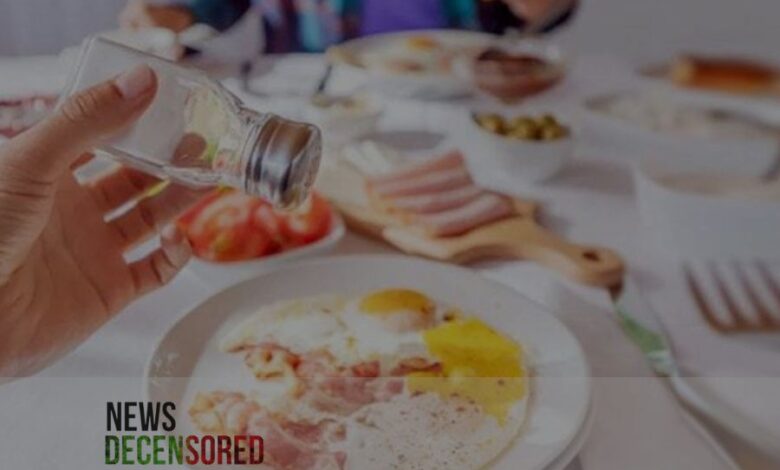Simple Swap, Big Payoff: Salt Substitutes May Lower Risk of Early Death, Study says

Skimming off the salt shaker might seem like a bland solution, but a new study suggests it could have a life-saving impact. Researchers found that using salt substitutes while cooking was linked to a significant decrease in the risk of early death from all causes, particularly cardiovascular disease.
Published in the Annals of Internal Medicine, the study is the first to analyse the effects of salt substitution over an extended period. “We’re excited to finally show evidence that salt substitutes can effectively improve cardiovascular health over the long term, even up to 10 years,” said Dr. Loai Albarqouni, the study’s lead author. This builds upon previous research that focused on shorter-term outcomes.
The study involved a systematic review of 16 randomised controlled trials with over 35,000 participants. These individuals, averaging around 64 years old, had a higher-than-average risk of cardiovascular disease. Most trials were conducted in China, with a few others in Western countries.
The researchers noted a surprising need for more research on salt substitutes outside Asia. This limited data makes it difficult to say definitively how effective they would be in Western populations, hence the study’s “low to very low certainty” rating for these regions.
The study found that using salt substitutes led to a decrease in both urinary sodium and blood pressure. This reduction in blood pressure mirrored the effects of blood pressure medications, potentially explaining the link to a lower risk of death.
The authors acknowledged some limitations. In some trials, the source and verification of the salt substitutes could have been more precise, with participants purchasing them independently. Additionally, salt consumption patterns differ significantly between Western nations and Asia. In the West, processed and restaurant foods significantly contribute to sodium intake, whereas the study focused on individuals who primarily added salt during home cooking.
Dr. Andrew Freeman, a preventative cardiologist, commented on the study’s limitations. “While it adds to the evidence that reducing sodium is beneficial, it’s not definitive yet.” He emphasised the importance of obtaining potassium through fruits and vegetables rather than solely relying on salt substitutes.
Simple Strategies towards Heart-healthy You
The American Heart Association advises most adults, particularly those with high blood pressure, to limit daily sodium intake to 1,500 milligrams. Here are some tactics to help you achieve this goal:
- Become a Label Detective: Don’t be fooled by appearances! Packaged and restaurant meals can be sodium bombs. Make a habit of scrutinising food labels to identify sneaky sodium sources.
- Unmask Hidden Culprits: Be on the lookout for unexpected sodium lurkers. Poultry, cereals, and even a seemingly innocent pickle can harbour a surprisingly high sodium.
- Swap Salt for Savory Substitutes: Consider using salt substitutes that mimic the composition used in the study. This can be a helpful strategy to add flavour without the sodium overload.
- Spice Up Your Life: Explore the exciting world of salt-free seasonings! Experiment with herbs, spices, and other flavorful ingredients to create delicious, low-sodium dishes.
- Cook More at Home: Taking control of your kitchen allows you to manage the sodium content of your meals directly. You can ensure you’re not adding excess salt when you cook at home.
Dr. Freeman reassures us that taste buds can adapt to a lower-sodium diet within a few weeks. Remember, reducing sodium is just one piece of the heart-health puzzle. To achieve optimal results, combine this strategy with a balanced diet, regular exercise, and quitting smoking if you do.




